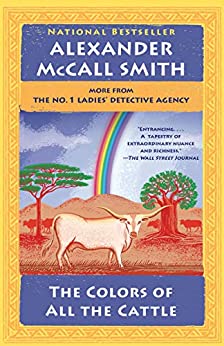More on this book
Community
Kindle Notes & Highlights
Read between
January 9 - January 14, 2019
She recognised that sometimes the best we could do was simply to muddle through, getting some things right but also getting many things wrong. She knew all that, and was never too quick to blame or offer reproach.
If you punish somebody harshly, she said, then you are simply inflicting more pain on the world. You are also punishing not only that person, but his family and the people who love him. You are punishing yourself, really, because we are all brothers and sisters in this world, whether we know it or not; we are all citizens of the same village.
When you listen to them, you have to divide everything they say by two, and then take away ten. As you have to do with some politicians.”
Late people are still with us. And they were. They were with us in the things that they had said, which we remembered long after they had gone; they were with us in the love that they had shown us, and which we could still draw about us, like a comforting blanket on a cold night; and, if the late people had had children, they were with us in the look in the eye of those children, in the way they held their heads, in the way they laughed, or in the way they walked, or did any of the other things that were passed on, deep inside, within families.
from the well of security it is not hard to draw the water of generosity.
If only people could keep that in their minds—if they could remember that the people they met during the day had all the same hopes and fears that they had, then there would be so much less conflict and disagreement in this world. If only people remembered that, then they would be kinder to others—and kindness, Mma Ramotswe believed, was the most important thing there was. She knew that in the depths of her being; she knew it.


